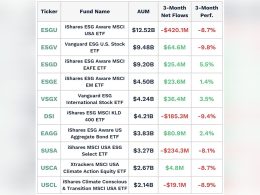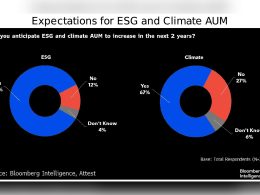As sustainability becomes integral to finance, BNP Paribas and Bloomberg hosted a Sustainability Hackathon to explore data-driven investment strategies. The event brought together experts from finance, ESG, and technology, leveraging AI tools and sustainability data to develop innovative investment products and enhance ESG risk assessments.
Participants used Bloomberg and BNP Paribas datasets, covering water stress, carbon emissions, and supply chain resilience, to tackle challenges in circular economy, climate adaptation, and sustainable agriculture. Several prototype solutions are now being refined for potential client offerings, reinforcing sustainability as a competitive advantage in financial markets.
Harnessing data for sustainable investment
Participants worked in mixed teams with access to Bloomberg and BNP Paribas’ sustainability and financial datasets, covering a wide range of indicators, including water stress, corporate carbon emissions, and supply chain resilience. Teams also utilised large-language model (LLM) tools to extract and analyse sustainability and financial data, refining their investment strategies to address global challenges such as circular economy, climate adaptation and resilience, sustainable agriculture, and water management.
Throughout the hackathon, teams developed new thematic investment products, improved client advisory approaches, and enhanced ESG risk assessments. Several prototype solutions successfully passed initial reviews, with the potential to refine existing BNP Paribas offerings or lead to new sustainable finance products.
Key takeaways from the hackathon
- Breaking down silos drives innovation: The collaboration of experts from diverse financial disciplines led to new perspectives and creative investment approaches.
- Sustainability data unlocks new investment frontiers: Combining structured financial data with unstructured ESG data allows for a more precise and efficient approach to investment product structuring and risk assessment.
- Sustainability is now a competitive advantage: The teams identified high-growth areas, such as water technology, resource efficiency, and resilient infrastructure, reinforcing the idea that sustainability-focused investment is becoming a strategic necessity.
Expert insights on ESG innovation
Jeremy Neyrou, Head of Sustainable and Strategic Innovation at BNP Paribas, highlighted that the hackathon demonstrated how combining specialist expertise can “raise the standard for ESG precision and impact.”
Olivier Houin, Head of Global Markets Sustainability COO at BNP Paribas, described the event as a catalyst for innovation, stating: “This hackathon, powered by Bloomberg’s ESG data, inspired talents across BNP Paribas and Bloomberg to drive innovation and create compelling content.”
Marie d’Argentré, Head of ESG Data and Transformation for CIB at BNP Paribas, emphasised the importance of robust ESG risk assessment, noting that testing BNP Paribas’ ESG risk evaluation framework against alternative tools ensures data accuracy and contextual relevance.
Constance Chalchat, Chief Sustainability Officer for CIB and Global Markets at BNP Paribas, concluded: “Data-driven innovations are essential to developing effective financial solutions that generate positive and sustainable outcomes for businesses, financial institutions, and investors.”
With sustainability now a core element of investment strategies, BNP Paribas’ hackathon serves as a proof of concept for how data-driven collaboration can accelerate ESG innovation. As sustainable finance evolves, initiatives like these provide investment professionals with practical, data-driven approaches to shaping the next generation of financial products.
















